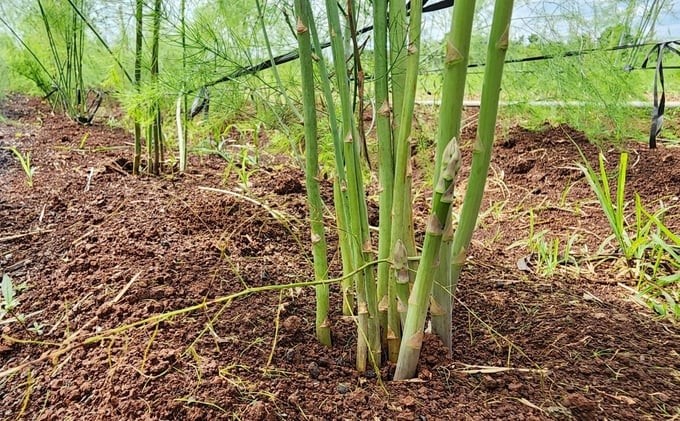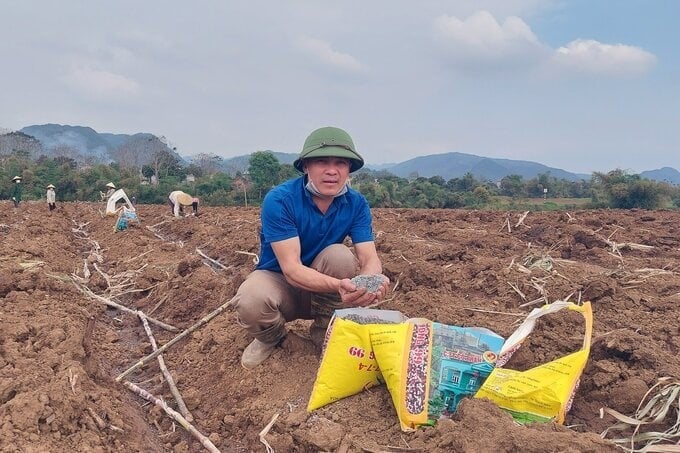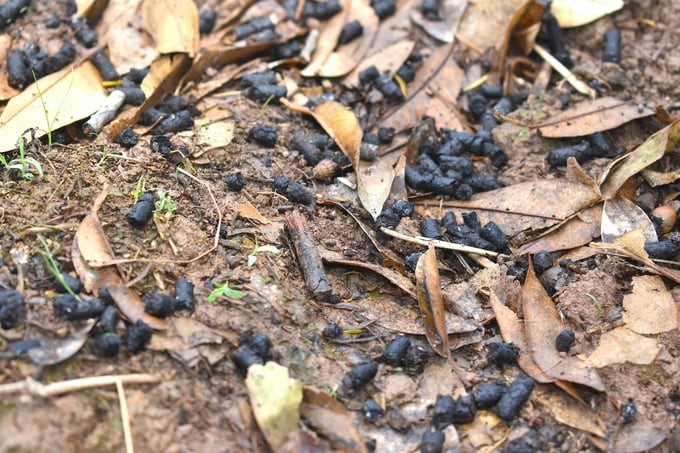June 1, 2025 | 14:55 GMT +7
June 1, 2025 | 14:55 GMT +7
Hotline: 0913.378.918
June 1, 2025 | 14:55 GMT +7
Hotline: 0913.378.918
On June 14, the Ministry of Agriculture and Rural Development organized a workshop on "Current status and orientation of soil health management towards sustainable crop production.".
We are scientists related to soil science, so we wish to make more comments so that we can jointly protect the health of Vietnam's cropland. We would like to comment as follows:
It is essential to deploy nationwide a system of "soil health hospitals" with modern soil analysis rooms and good soil doctors (soil agrochemical engineers). Only then will farmers have a place to check agricultural soil health and know what they need to pay attention to about the soil they are cultivating.

'Soil health hospitals' will help farmers analyze and know what they need to pay attention to about their productive soil. Photo: KS.
Currently, this is a deadlocked issue for Vietnamese farmers. Vietnam's cropland has been showing signs of "excessive limiting nutrients." This factor has an even greater impact on soil health than the factor of "deficient nutrients" in the soil.
There are now three problems frequently affecting soil health that need immediate solutions.
1) On sloping land in the Central Highlands, there are often severe droughts at the end of the dry season. Farmers do not have enough water for irrigation, so what needs to be done is to deploy many irrigation dams in the valleys to store water for irrigation until the end of the dry season while maintaining vegetation. Only then can we protect the soil microbial community (the ingredient that increases soil health).
2) In the Mekong Delta, the area of land contaminated with salinity and the impact of salt water at the end of the dry season increase highly. Saltwater intrusion is greater than 70 km, which has greatly affected soil health. Therefore, the Ministry of Agriculture and Rural Development needs to soon find a solution to dig reservoirs along the Tien and Hau Rivers (upstream) to store water to combat drought and salinity. Remove local flood prevention systems to receive alluvium and fisheries from the Mekong River.

Long-term dependence and abuse of chemical fertilizers cause soil to have less biodiversity and become more and more seriously degraded. Photo: Vo Dung.
3) Currently, we are not cultivating harmoniously between chemical (inorganic) and organic fertilizers, so we need to advise and have solutions to support businesses and farmers in producing organic fertilizers. The agricultural sector now produces 15 million tons of waste and by-products each year. Composting with high technology (improving quality) and producing biochar will greatly contribute to increasing soil health.
Agricultural production in our country mainly uses chemical fertilizers for a long time, causing soil to have less biodiversity and become more and more seriously degraded, and causing plants to develop poorly with many pests arising. The overuse of chemicals has made our country's agricultural production less sustainable, with low economic efficiency. Especially, the land is increasingly degraded and depleted of nutrients.
Currently, there is no other way to overcome this problem than to change practices and awareness in agricultural production, not to overuse chemicals, and to mainly cultivate in an organic direction (in production, chemical fertilizer is still used, but not overused). However, if there are many animal and plant residues in the soil without enough microorganisms with their rich and diverse activities, the soil will not be able to decompose plant and animal residues to create organic compounds that create soil fertility, provide food for the microbial community in the soil, and provide nutrients for plants to grow well.

Organic fertilizer is a favorable environment for soil microorganisms to develop and increase soil health. Photo: Trung Quan.
Many species of microorganisms are also the forces that protect plants from unfavorable conditions and pests. Therefore, when talking about organic, we must talk about how to protect the activity and biodiversity of microorganisms in the soil. It can be said that microorganisms play a very important role in protecting soil fertility and managing crop pests. Healthy soil - Healthy plants - Healthy environment - Healthy people.
Translated by Thu Huyen

(VAN) Several scientists and farmers are experimenting with soil treatment in some key durian-growing regions such as Cai Lay (Tien Giang), Dak Song, Gia Nghia, and Dak R’lap (Dak Nong).
/2025/05/25/4127-3-073637_820.jpg)
(VAN) Thanks to the promotion from an FAO-implemented project, vegetable production in greenhouses in Moc Chau has seen strong development, from 1.5 hectares in 2021 to nearly 50 hectares in 2024.

(VAN) FAO has recently supported USD 140,000 to implement the project 'Risk mitigation human-animal interface risks through disease control initiatives in pig farming.'

(VAN) The People's Committee of Tra Vinh province has approved an adjustment to the investment policy for the Green Hydrogen Plant project, increasing its area to approximately 52.76 hectares.
![Reducing emissions from rice fields: [2] Farmers’ commitment to the soil](https://t.ex-cdn.com/nongnghiepmoitruong.vn/608w/files/news/2025/05/05/dsc08881jpg-nongnghiep-140632.jpg)
(VAN) Clean rice cultivation model in Thuong Tan commune, Bac Tan Uyen district, is assisting local residents in achieving sustainable agriculture by substantially reducing costs, increasing productivity, and protecting the environment.

(VAN) At the conference to disseminate Resolution No. 68, AgriS introduced its digital agricultural ecosystem and reaffirmed its commitment to accompanying the Government in promoting private sector development and sustainable agriculture.

(VAN) 'Blue Ocean - Blue Foods' initiative is designed to restore marine ecosystems and establish sustainable livelihoods for local communities by cultivating a minimum of 1,000 hectares of cottonii seaweed in the first three years.